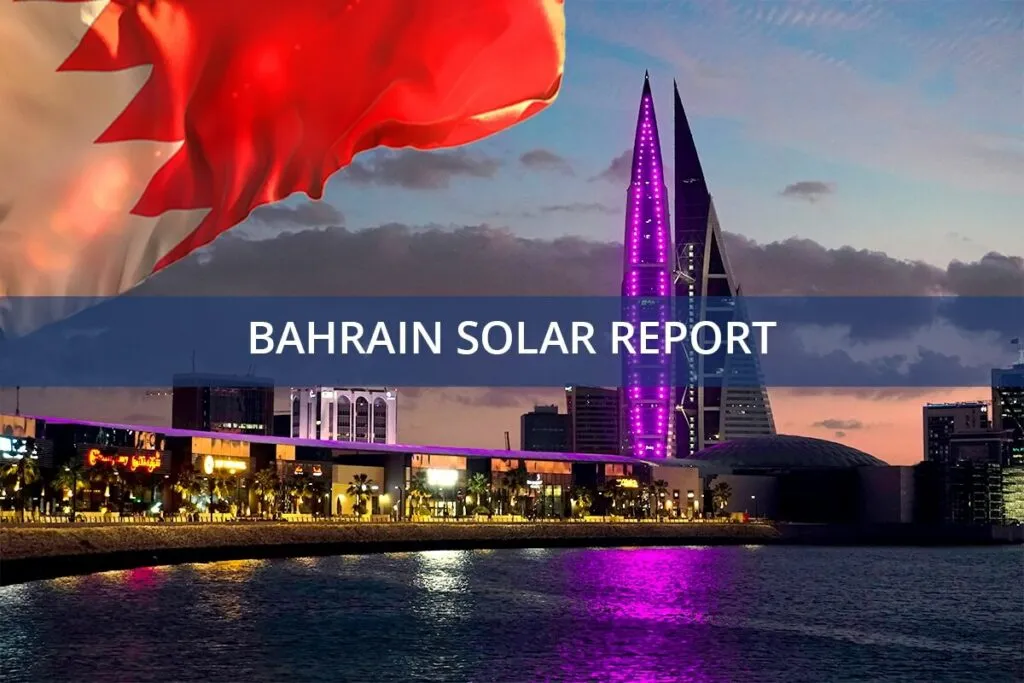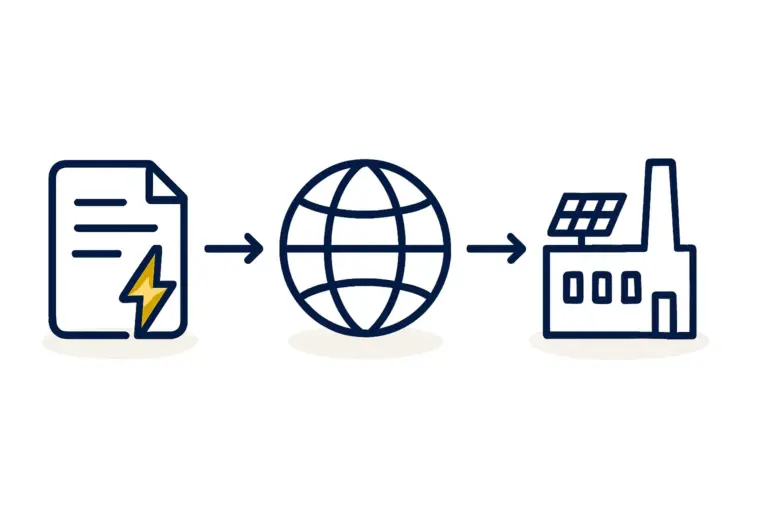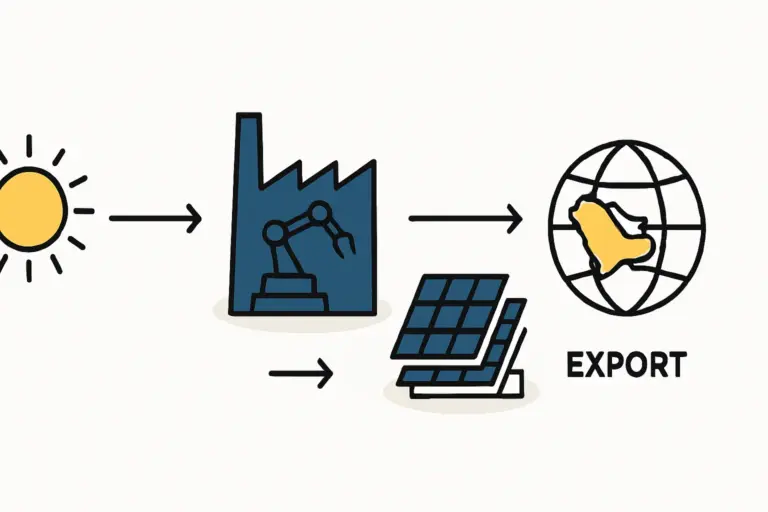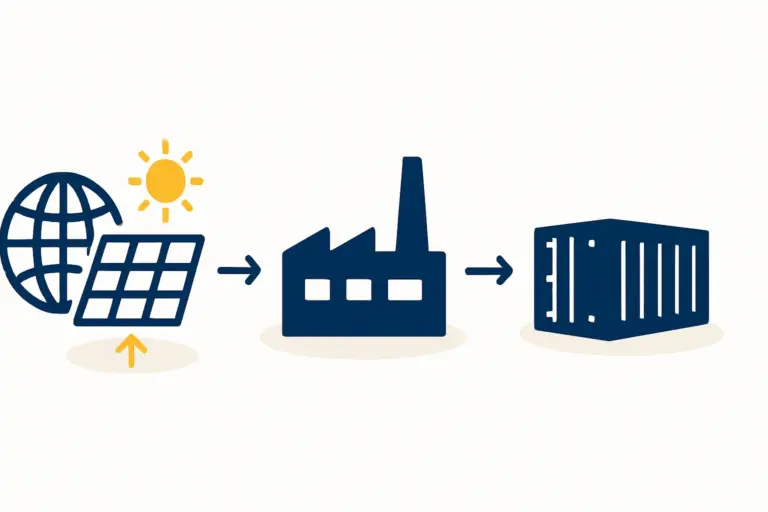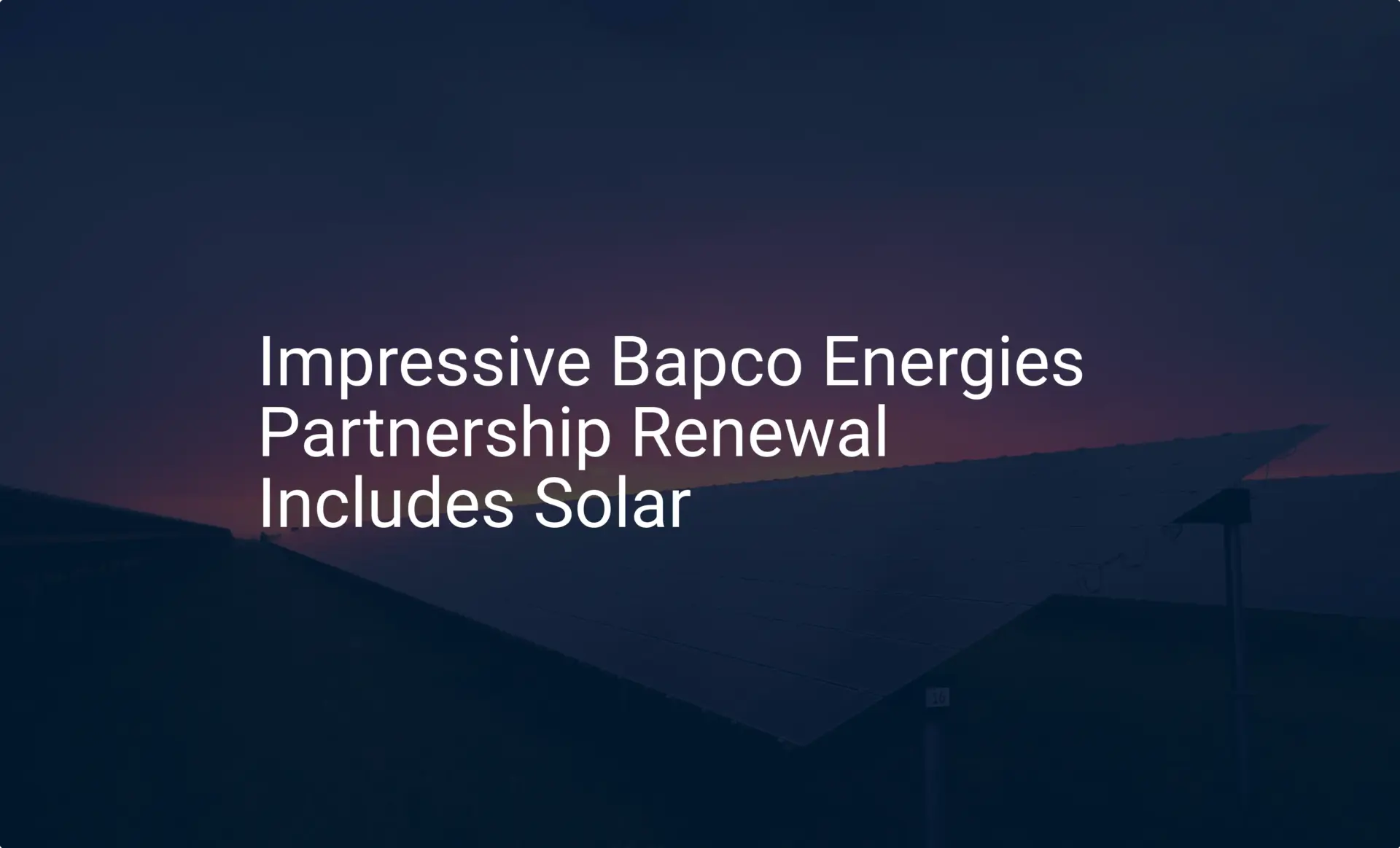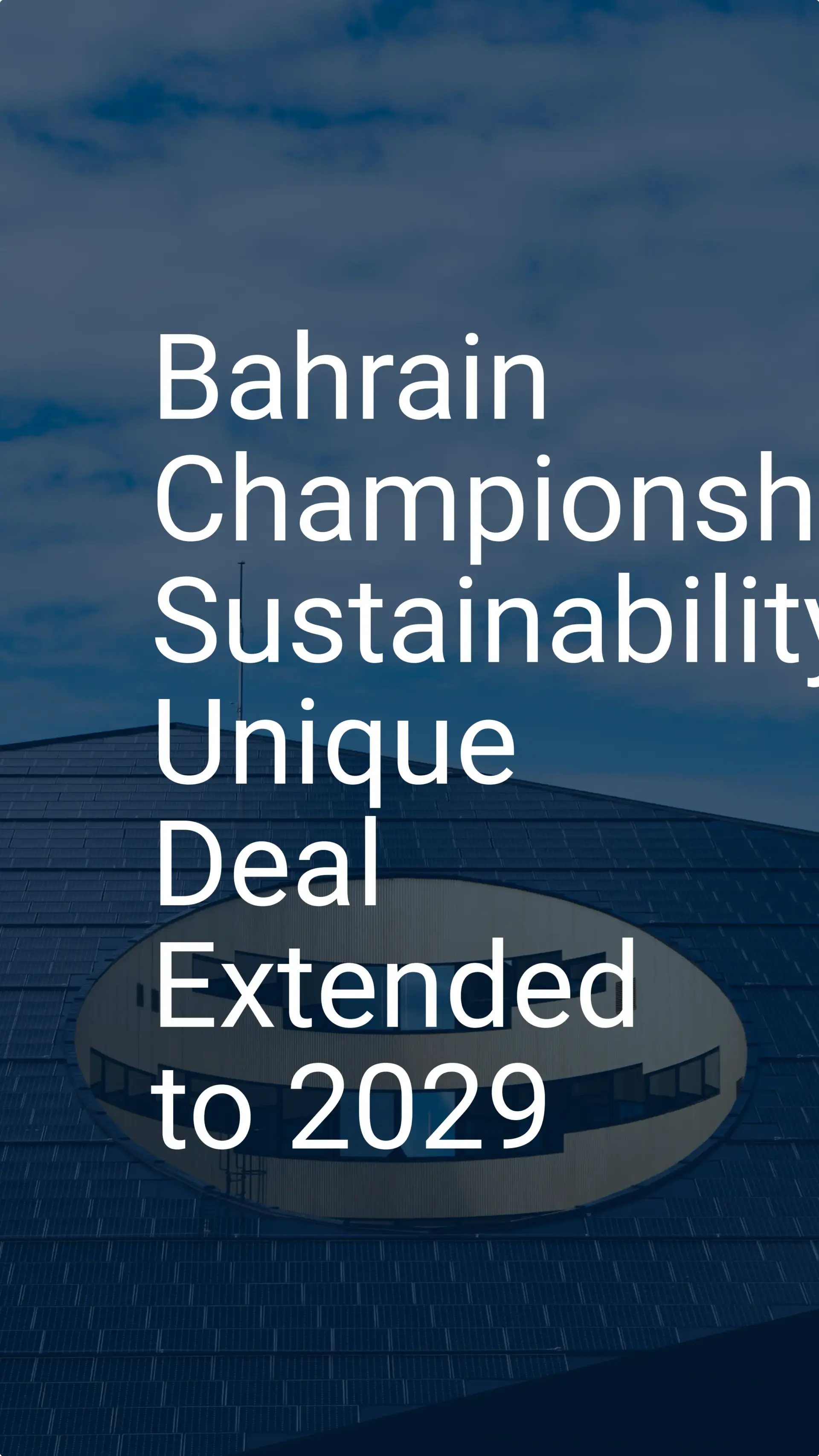As the world pivots toward renewable energy, nations are reassessing their industrial capabilities. For entrepreneurs and investors, this global shift presents a unique opportunity: to build local manufacturing capacity in markets with high growth potential.
The Kingdom of Bahrain, with its strategic vision and robust infrastructure, is emerging as a compelling location for solar panel manufacturing, offering a stable and supportive environment for new ventures.
Table of Contents
Bahrain’s Vision for a Solar-Powered Future
Supportive government policy is the bedrock of any new solar enterprise. Bahrain has established a clear roadmap through its National Renewable Energy Action Plan (NREAP), which sets ambitious targets for a greener future. The plan aims for 255 MW of solar capacity by 2025 and a total of 700 MW from renewable sources by 2035.
Guiding this initiative is the Sustainable Energy Unit (SEU), which implements policies that attract investment and drive adoption. This high-level commitment fosters a stable and predictable environment for businesses planning to enter the market.
Plot your course to solar success.
Get the practical help from our comprehensive services for immediate impact, or dive deep with advanced insights from our Premium Course to master the future. We’re here to map your journey.
Analyzing Bahrain’s Core Infrastructure
Beyond policy, a successful manufacturing operation requires solid, reliable infrastructure. Bahrain excels in this area, providing the essential logistical and utility support needed to thrive.

Ports and Logistics: A Gateway to the Region
An efficient supply chain is critical for importing raw materials and exporting finished modules. Bahrain’s Khalifa Bin Salman Port is a modern, world-class facility capable of handling large cargo volumes with ease.
A well-maintained road network connects the port to industrial zones and stretches across the King Fahd Causeway to Saudi Arabia, providing seamless access to the wider Gulf Cooperation Council (GCC) market. These logistical strengths reduce operational friction and shorten lead times for manufacturers.
Power Grid: Reliable and Ready for Industrial Loads
Solar module manufacturing is energy-intensive and requires a stable power supply. Bahrain’s Electricity and Water Authority (EWA) manages a highly reliable national grid with 100% electricity access.
Crucially, the grid’s generation capacity is approximately 103% of the country’s peak demand, leaving a significant buffer to ensure consistent power for industrial users. The EWA is also actively modernizing the grid to integrate renewable energy, positioning it as a stable partner for new solar projects.
Industrial Zones: Purpose-Built for Manufacturing
Bahrain addresses the challenge of factory location with specialized industrial zones designed to attract foreign investment. The Bahrain International Investment Park (BIIP) is a prime example, offering pre-serviced industrial plots with ready access to essential utilities like electricity, water, and telecommunications.
These zones streamline the setup process, enabling companies to move from planning to production more quickly and efficiently.
Who Is Already Manufacturing Solar Panels in Bahrain?
The industry’s viability is best demonstrated by the pioneering firms already on the ground, proving Bahrain’s credibility as a manufacturing location.
Solar One
As Bahrain’s first solar panel manufacturer, Solar One set a key precedent. With a reported capacity of 60,000 panels per year (approximately 15 MW), the company shows that local production can meet regional demand for high-quality modules.
Solartecc
Leveraging advanced European technology, Solartecc operates a fully automated production line. This focus on high-tech manufacturing underscores the potential to produce globally competitive solar panels from a base in Bahrain. The presence of such companies signals a market that values both quality and technological advancement.
The Business Case: Incentives and Market Demand
Strong infrastructure and a proven manufacturing base are compelling, but the financial case must also be sound. Bahrain has cultivated a supportive business environment through targeted incentives and clear market demand.

Financial Support and Favorable Policies
The government has implemented several mechanisms to encourage solar energy adoption and investment. The net metering system allows solar energy producers to feed excess power back into the grid, creating value for end-users. For larger projects, tender-based feed-in tariffs ensure competitive and transparent pricing.

Furthermore, financial support is available through programs like Tamkeen’s Solar Financing Scheme, which can provide significant capital to help launch or expand operations.
A Growing Appetite for Solar
Demand for solar panels in Bahrain is robust and growing, a trend underscored by several large-scale projects. Notable examples include:
- The Sakhir Solar Park: A 72 MW project that signals the government’s commitment to utility-scale solar.
- APM Terminals: An 11.4 MW solar plant at the Khalifa Bin Salman Port, demonstrating industrial adoption.
- Aluminium Bahrain (Alba): A major industrial player integrating solar power into its operations.
These projects create a reliable, long-term domestic market for locally manufactured solar modules.
Understanding the Operational Costs
A look at operational costs reveals a competitive landscape. Industrial electricity tariffs are set at approximately $0.077 per kWh, while rent for industrial land in specialized zones is regionally competitive. These factors, coupled with access to a skilled workforce, help keep operational budgets manageable.
A high solar yield of 1,600 to 1,700 kWh per installed kWp further strengthens the financial case for solar investments in the region.
Conclusion: A Strong Foundation for Solar Ventures
Bahrain presents a well-rounded and compelling business case for establishing a solar panel manufacturing facility. The combination of a clear government vision, modern infrastructure, a proven manufacturing ecosystem, and strong market demand creates a low-risk, high-potential environment.
For an entrepreneur or investor looking to enter the clean energy sector, Bahrain offers not just an opportunity, but a strategic foundation for long-term success in the growing Middle Eastern renewable energy market.

